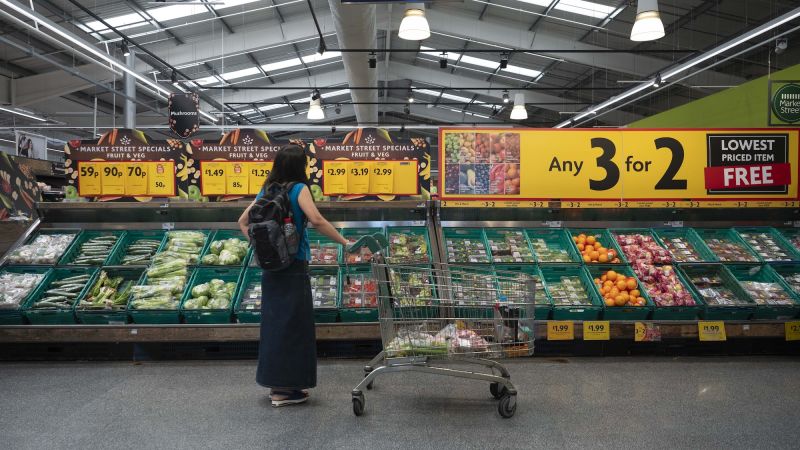
Less choice and higher prices? Britain braces for Brexit checks on food imports
CNN
The UK’s dependence on the EU for fresh food could mean pain for consumers and small businesses as new post-Brexit border checks are rolled out from April 30.
The United Kingdom does not feed itself, relying heavily on the European Union for fresh fruit and vegetables. That dependency has changed little since Britain left the bloc in 2020, and could now mean more pain for consumers and small businesses. Tuesday marks the beginning of the long-delayed introduction of post-Brexit physical inspections of plant and animal imports from the EU. The spot checks will apply initially to products such as meat, cheese and some fish, and eventually to a range of vegetables and fruit. Hefty new charges on some imported food products will also come into effect, threatening to reduce consumer choice and push up prices not long after UK food inflation fell from double-digit rates. The measures coincide with dire warnings about the possibility of price rises for bread and beer because of the impact of unprecedented rainfall on British grain harvests. The new regime for food imports is perhaps the starkest example of the painful border bureaucracy that UK and EU businesses must contend with in the wake of Brexit. Before leaving the EU, Britain enjoyed unencumbered access to the vast array of food produced in neighboring countries: cheese from France, peaches from Spain, artichokes from Italy. A steady stream of EU agricultural workers, meanwhile, was a boon to British farmers. In the post-Brexit world, Britain’s food supply is more vulnerable to external shocks, even as related labor shortages have at times forced local farmers to leave crops rotting because of a lack of workers to harvest them.













